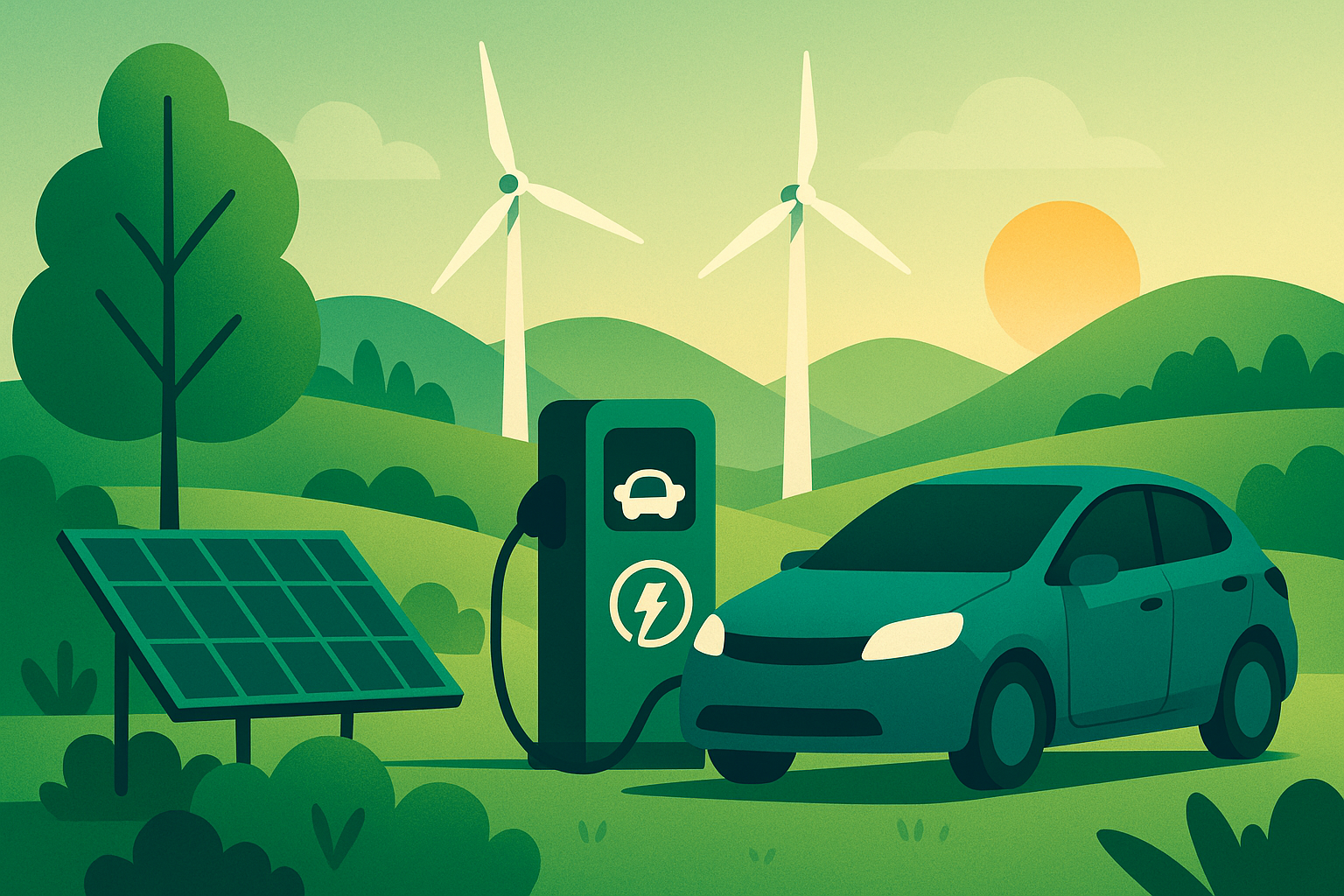Powering the Future with Electric Vehicle Chargers
We offer tailored EV charging solutions for homes, workplaces, and public spaces—supporting the UK’s transition to clean, efficient transportation.

Types of EV Chargers We Offer
There are several types of EV chargers, each catering to different needs based on charging speed, location, and power source.
🔌 Level 1 Charger (Standard Outlet)
- Voltage: 120V (up to 1.4 kW)
- Best For: Home charging with minimal setup
- Charging Time: 3–5 miles of range per hour
Level 1 chargers are the most basic type of chargers, using a typical 120-volt AC outlet. This is the slowest form of charging, primarily used in homes or small parking spaces. While convenient, it’s not ideal for those needing to charge quickly due to its relatively slow charging rate.
⚡ Level 2 Charger (240V AC)
- Voltage: 240V (3.3–19.2 kW)
- Best For: Homes, offices, and public stations
- Charging Time: 10–20 miles per hour
Level 2 chargers provide faster charging speeds compared to Level 1. They are often installed at homes, workplaces, and public charging stations. These chargers can typically charge an EV in 4-6 hours depending on the battery size and charger power.
🔌 Level 1 Charger (Standard Outlet)
- Voltage: 400V–900V DC (50–350 kW)
- Best For: Commercial use, highway stations
- Charging Time: 80% charge in ~30 minutes
Level 3 chargers, also known as DC Fast Chargers (DCFC), are the fastest chargers available. They convert AC power from the grid directly to DC, which is what the EV battery uses. This significantly reduces charging times, providing an 80% charge in as little as 30 minutes. Level 3 chargers are ideal for long-distance travel and high-traffic locations.
⚙️ How EV Chargers Work
EV chargers transfer electricity from the grid to your EV battery via an onboard charger or direct current (for fast charging). The rate depends on both the charger and vehicle compatibility.
🌐 Charging Network Integration
- Range Anxiety Solutions
- Universal Compatibility
- Smart Scheduling for Off-Peak Charging
🌱 Benefits of Our EV Charging Infrastructure
- Lower Emissions & Pollution
- Incentives & Tax Rebates
- Savings Over Petrol/Diesel
- Smart Grid Support
⚠️ Challenges We’re Solving
- Charger Availability
- Long Charging Times
- Installation Costs
- Interoperability Across Models
🚀 The Future of EV Charging
- Vehicle-to-Grid (V2G) Tech
- Wireless Charging
- AI Smart Charging
- Full Charge in Under 20 Mins (Coming Soon)
Ready to Go Electric?
Let’s build a greener, more connected energy future together.
